Resident Evil has been an industry giant since the PlayStation era. Over its more than two decade lifespan, this series has delivered some great games in the main titles (listed in order of worst to best here) and some great spinoffs. Of course it also spawned a few games as disgusting as its infected beasts. Here are all the Resident Evil spinoffs, ranked from worst to best.
12) Resident Evil: Operation Raccoon City
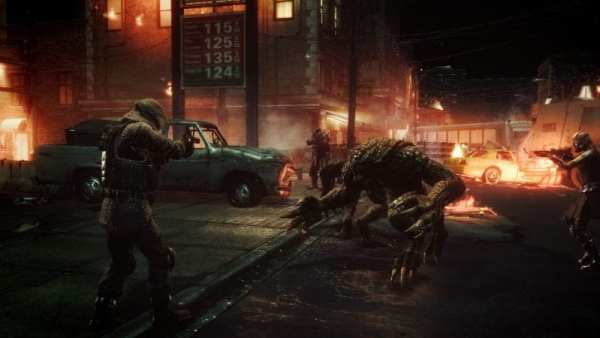
Don’t let the title fool you. Following Resident Evil 5’s sharp shift to action over horror, there was nothing fans wanted more than to be back in the dank, eerie streets of Raccoon City. What ORC did instead was forgo the horror all together and attempted to emulate Valve’s Left 4 Dead series. And poorly, at that.
This was no worthy successor to Outbreak. Ammo and weapons were everywhere, stacked in piles larger than those you’d find at a military shooting range. Which was good thing, since enemies took an obscene amount of damage. As a result, the campaign felt like a marathon drudge through linear checkpoints that felt like it would never end. Even if it only took 5-6 hours to complete.
This game’s war on the unconscious was unrelenting. It even had a cinematic reminiscent of RE2’s backseat zombie launch and truck explosion. For its nefarious tactics and blatant butchery of the series, Operation Raccoon City takes the top spot as the worst Resident Evil game ever.
11) Resident Evil: Survivor
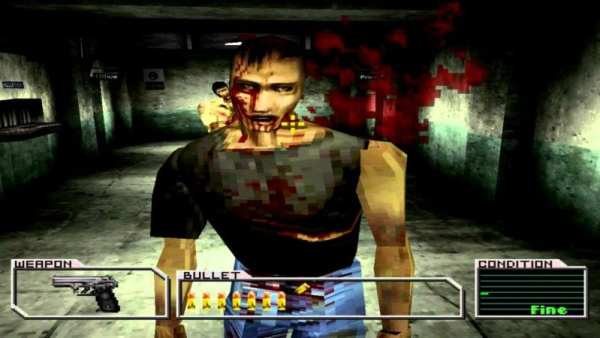
The first of many spinoffs, Resident Evil: Survivor was a light gun shooter played from a first-person perspective. Survivor was slow, shallow and underwhelming on every level. It basically consisted of directing a yellow cross hair cursor around the screen and shooting whatever came at you.
Survivor was a gimmicky game meant to capitalize on the PS1’s gun periphery, GunCon. However, the U.S. version of the game didn’t support the special controller, due to the tragic Columbine High School shootings. This left the U.S. fans of series with a D-pad controlled light gun shooter in an age where most light gun shooters supported special controllers. This was just another nail in the coffin of this bland, uninspired spinoff.
10) Resident Evil Survivor 2: Code Veronica
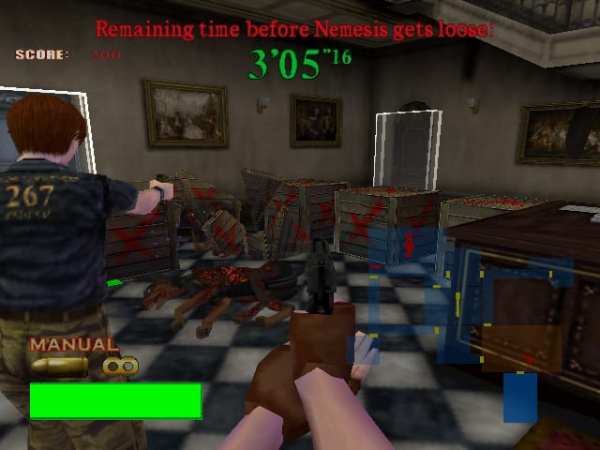
For some reason Capcom thought it would be a good idea to try again with the Survivor series, this time around it piggybacked not only on the series’ brand power but also on Code Veronica’s, an extremely well-received and beloved game. The results were about as good as you should expect after playing Survivor.
Once again, players had infinite ammo reserves to blast through any enemy, eliminating any sense of tension or fear. Once again, the story was uninspired and almost non-existent. Once again, the game lacked cooperative play, destroying the only possible saving grace this game could have had, instead forcing players to rely on a braindead AI partner. But hey, at least the game looked good for its time.
9) Resident Evil: The Mercenaries 3D
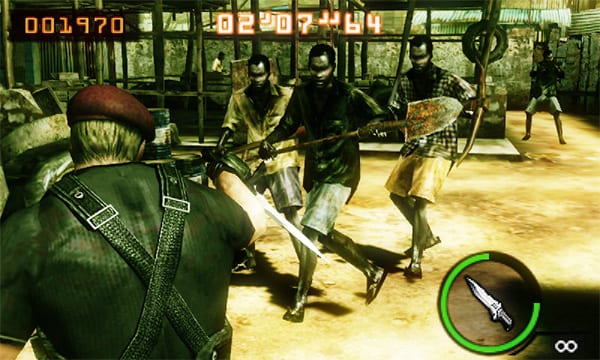
It’s games like the Mercenaries 3D that give gamers the impression that companies only care about their bottom line and not at all for creativity, originality or artistic expression.
This portable title for Nintendo’s 3DS took the mercenaries mini-game from RE 5, tacked on some hardly noticeable 3D effects and sold it for $40(USD). Not only did it recycle enemies, textures, sounds, hell, pretty much everything, it also failed to expand or significantly alter the mode. There was almost nothing new here, except for the ability to strafe while aiming but that wouldn’t even begin to justify this game’s laziness and absurd price point. Think about it this way: you wouldn’t think it reasonable to pay $40 for a straight port of The Witcher 3’s Gwent, fantastic as it may be. But if you really wanted the Mercenaries on the go, then go for it. Just mind the performance hitches.
8) Resident Evil: Gaiden
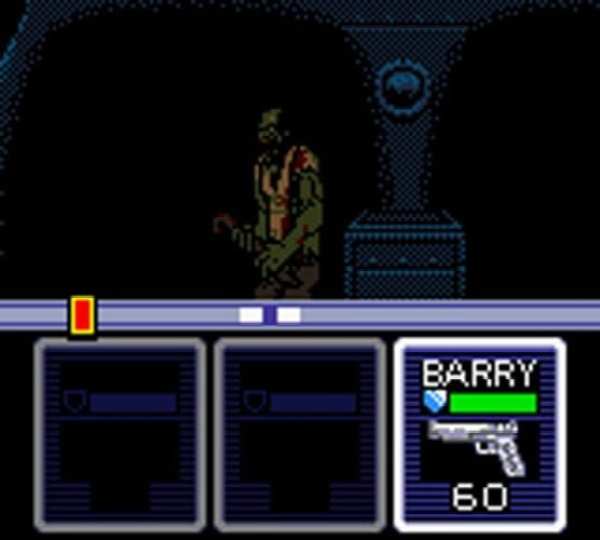
After failing to complete the planned Gameboy Color port of Resident Evil 1, Capcom redirected the project and handed the development mess over to a British Studio, M4. The end result was Resident Evil: Gaiden.
As with most underwhelming games in this series, Gaiden was far too easy to be considered a survival horror game. Your PDA log prevented you from ever getting lost and the map would show your current location and destination. Inventory space was unlimited, and the game would notify you when you were near items likes ammo and herbs.
Combat was triggered by proximity or player interaction and would cut the action from a top down view reminiscent of Pokemon to a first-person view in which you attempt to time your shots to a moving bar. This timing mini-game approach gets old fast and you’ll quickly begin trying to avoid all contact with enemies. Unfortunately for you, the zombies would often reach you where they normally shouldn’t be able to. Frustrating to be certain, but it gets even worse. Instead of only having to deal with the cheeky bastard who grabbed you, you’ll have to contend with all enemies on screen at the time. Regardless of their distance. Very frustrating.
7) Resident Evil: Umbrella Chronicles
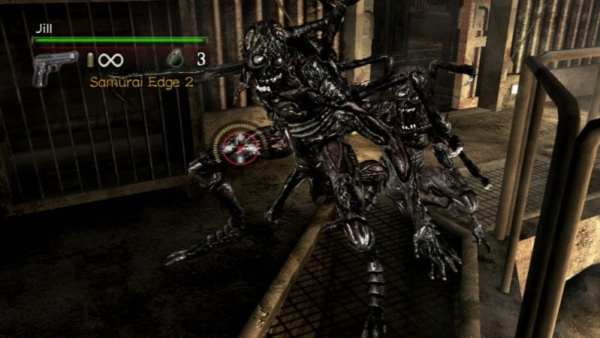
Looking to get into the Resident Evil series, its lore, epic encounters and adventures? Then give Umbrella Chronicles a try. Offering a super condensed version of the RE0, 1, and 3 games in an on-rail shooter format, U.C. was a quick Wii-based romp that could be completed in a single sitting. Of course the original games offer the far superior Resident Evil experience.
Umbrella Chronicles was still a good bit of fun, especially if you played with a friend. But it was even more fun to hog both Wiimotes and go in guns blazing. Well you couldn’t go anywhere, the game took you places whether you liked it or not but you get the idea.
6) Resident Evil: Darkside Chronicles
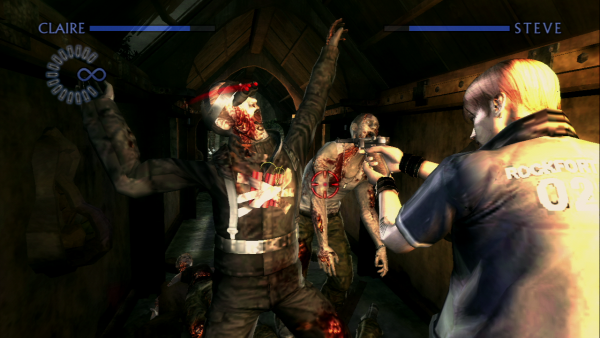
Following up on Umbrella Chronicles’ on-rails success, RE: Darkside Chronicles retells the stories of Resident Evil 2 and RE Code: Veronica with some new story bits to boot, filling players in on the history between Leon and Krauser referenced in RE4.
Sporting sharper graphics and a more immersive, if not excessively shaky, camera, Darkside Chronicles does a better job of getting under players’ skin. Aside from the pistol’s unlimited ammo pool, special ammo was also a little harder to find this time around, encouraging you to conserve your stash for the grand boss fights, which were also bigger and more exciting than Umbrella Chronicles’. At this rate, the Chronicles spinoff series may very well give Resident Evil a place in the on-rail shooter halls of glory that the earlier Survivor series fell so far short of.
5) Resident Evil: Dead Aim
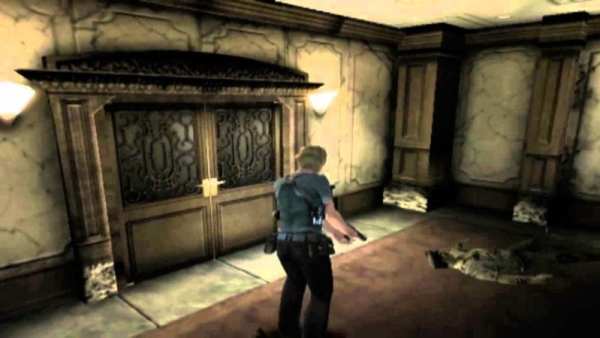
Blending the third-person controls of the originals and the on-rail view of previous spin-offs, Dead Aim clearly inspired some control and perspective features that would later appear in a refined form in Resident Evil 4.
The distant over-the-shoulder view is used to navigate the game’s setting, an Umbrella-owned ship, which varied between tight corridors and open rooms. Taking aim required standing still and this shifted the camera into a first-person perspective, replacing your character with a cross-hair much like Survivor’s. Ammo isn’t unlimited, but if you exercise some control it shouldn’t be a problem. Dead Aim was the first game in the series to offer tactical aim which rewarded you for hitting specific targets. Headshots were superbly satisfying to pull off, and hitting enemies in the legs slowed their approach.
4) Resident Evil: Deadly Silence
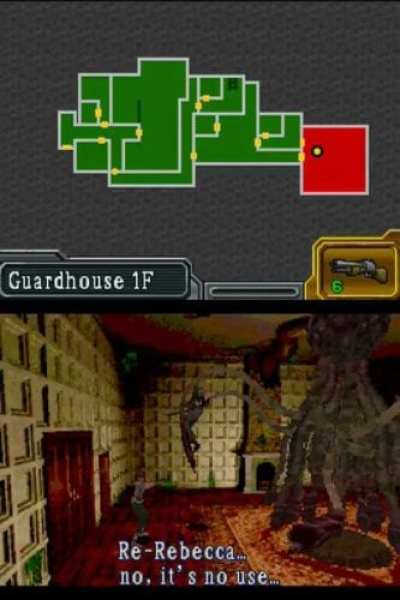
Ever wished you could take the original Resident Evil on the go? Hammy voice acting and full motion cut scenes and everything? Resident Evil: Deadly Silence directly ported the original game onto the handheld back in 2006 but also brought with it a “Rebirth” mode. The new mode featured new locales, puzzles, and DS-specific features, like swiping the screen to use your knife.
While the new content wasn’t as engaging or imaginative as the content added by the other Resident Evil 1 remakes and remasters, Deadly Silence still offered fans of the series the chance to take the legendary original on the go. Who doesn’t want to look like an idiot laughing to themselves in public to Barry’s infamous “Jill sandwich” line? Or maybe you just want to curl up in bed late at night and revel in nostalgia. Either way, fans couldn’t really go wrong adding Deadly Silence to their Nintendo DS collection.
3) Resident Evil: Outbreak
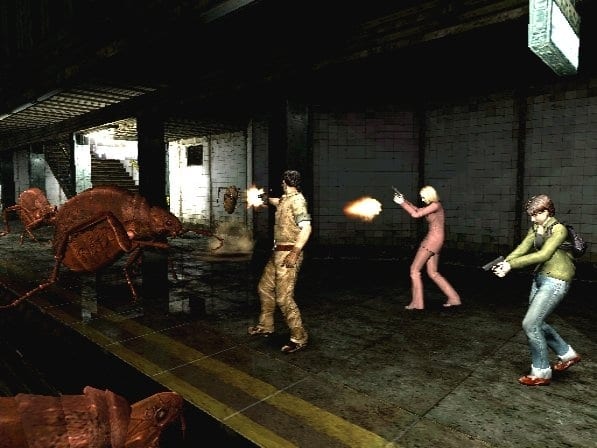
The PlayStation 2 stumbled into the online gaming arena with a few of the console’s titles. However, the network was sparsely populated and difficult to deal with. That didn’t stop Resident Evil: Outbreak from ambitiously ushering the series into the realm of online multiplayer.
Outbreak offered an impressive character roster with different stats and skills, with some even capable of crafting items. This diversity made each character unique, with their special skills allowing access to different areas, treating players to slightly varied experiences and also further enhanced the cooperative experience as you teamed up with strangers to fight monsters, solve puzzles, and escape the five different scenarios. Story takes a backseat in this online focused co-op survival horror game, so don’t expect much.
Outbreak File 2 felt more like an expansion pack than a full-fledged sequel to its predecessor. The same eight characters returned, driven by the same gameplay style and camera. This wasn’t necessarily a bad thing, as Outbreak was a great spinoff but, ultimately, Outbreak File 2 fails to significantly move the spinoff forward and mostly appealed to fans of the original who just wanted more of the same.
2) Revelations 1
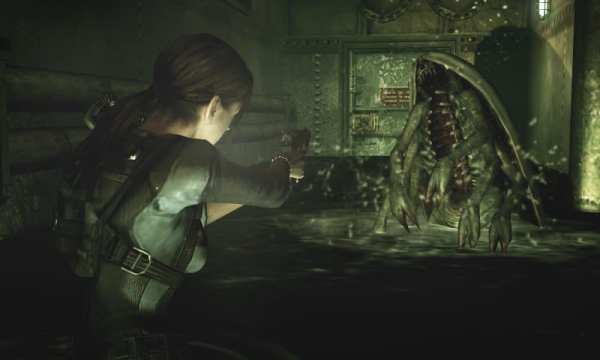
The Revelations spinoffs, according to many fans of the series, have quietly played host to the true Resident Evil experience, since the action-hijacking of the main titles by Resident Evils 5 and 6. Masterfully blending the best of Resident Evil 4 as well as the roots of the series, Revelations was eagerly embraced by fans looking for a true survival horror experience.
Although the game had almost no puzzles to deal with, it still felt loyal to the source material, limiting ammo significantly by comparison to other recent games. The atmosphere was always tense and claustrophobic aboard the isolated ship and the use of the 3DS’ unique capabilities meant you’ll be paying extra careful attention to the 3D sound, listening for every creak and rustle in the hopes of getting the upper hand.
Aside from the ten hour campaign, Revelations introduced an RPG-influenced Raid mode. Completing missions and scoring well meant earning level progress and new weapons in the mode, giving you a little more motivation to replay the mode than simply setting a high score. The experience wasn’t perfect, but it certainly was a much appreciated step in the right direction for a series that feels more lost than ever.
1) Revelations 2
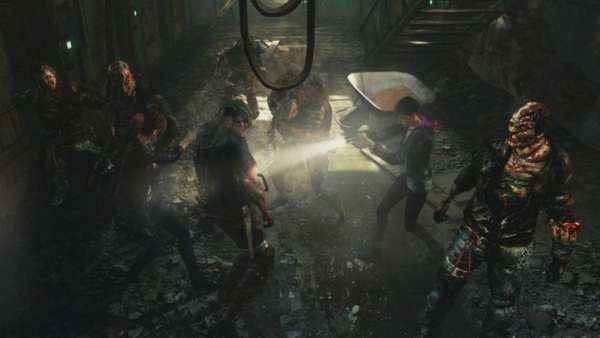
Revelations 2 did well to follow up on the success of its predecessor. Set between 5 and 6, Revelations 2 does a great job of expanding and enriching the lore, all while giving favorites like Barry Burton and Claire Redfield some much deserved game time. The scenarios can be played alone, swapping between characters, or in local co-op where each player controls one of the four main characters depending on the campaign selected. Barry is a hulking beast, packing quite a punch and capable of taking one just as well. His daughter, Moira, only carries a flashlight which she can use to blind enemies, giving your partner a chance to make a well placed shot. Natalia offers helpful hints and Claire is agile and swift.
Enemy types were much more varied than in the previous game and the boss fights offered a great change of pace, with big cinematic battles that are sure to put you in your place. New features like a skill tree which focused on different styles of play further distinguishing each playthrough. The improved Raid mode pits you against a variety of monster waves but this time around enemies can appear with varied levels and buffs. Revelations 2 refined the excellent groundwork its predecessor laid years prior. Here’s hoping the series continues down this creaky hallway and back to its creepy roots.
What are you favorite Resident Evil spin-offs? Do you agree with this list? Share your thoughts in the comments below.
This post was originally authored by Ahmed Khattab.
